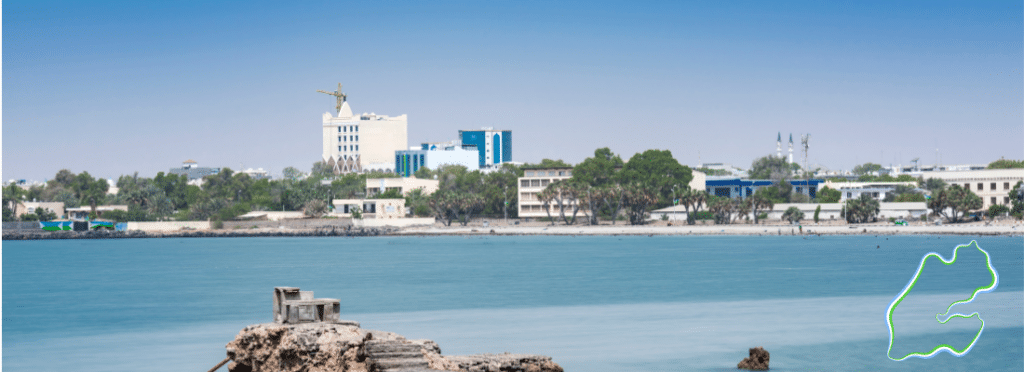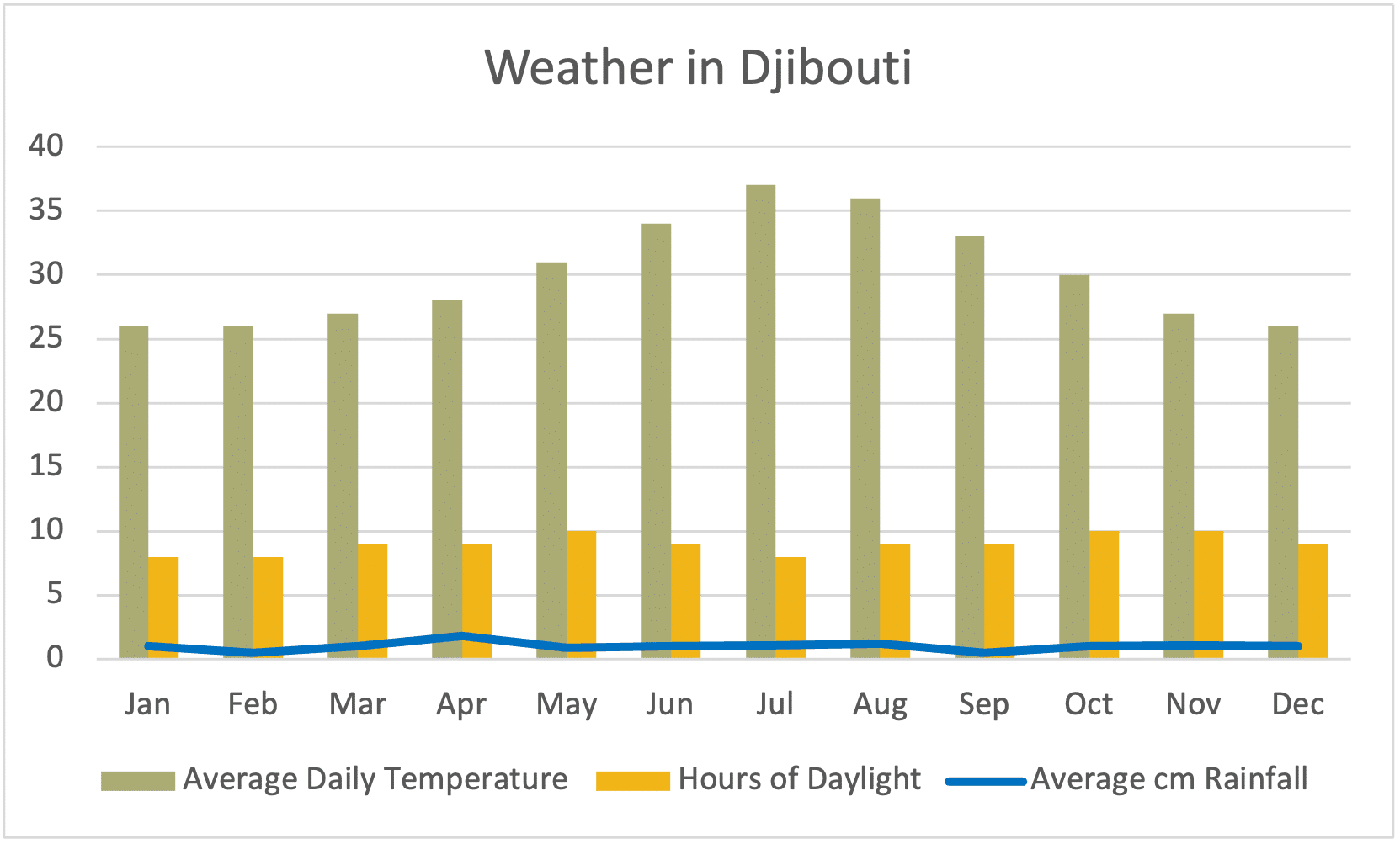Djibouti

Djibouti, a small yet captivating country on the Horn of Africa, offers an array of unique and adventurous experiences for travellers seeking something off the beaten path.
Djibouti is home to some of the most extraordinary and dramatic landscapes in Africa. The Lake Assal, one of the lowest points on Earth, is a striking salt lake with stunning turquoise waters surrounded by white salt flats. It offers an otherworldly experience like nowhere else. The Danakil Depression, shared with neighboring Ethiopia, boasts active volcanoes, hot springs, and surreal formations that make it feel like another planet. Lake Abbe is famous for its “chimney” formations created by geothermal activity, providing a dreamlike setting for adventurers.
The crystal-clear waters of the Red Sea make Djibouti a paradise for diving and snorkeling enthusiasts. The Gulf of Tadjoura is a premier destination for spotting whale sharks, especially between November and February. Coral reefs teem with vibrant marine life, including dolphins, rays, and schools of colorful fish. Moucha Island and Maskali Islandoffer pristine beaches and excellent opportunities for underwater exploration, making Djibouti a hidden gem for marine adventures.
Djibouti is a melting pot of cultures influenced by Africa, the Middle East, and France, creating a rich and diverse cultural heritage. The bustling markets in Djibouti City offer a glimpse into local life, with a mix of Somali, Afar, and French influences in the food, language, and traditions. Place Menelik and the Grand Mosque of Hamoudi reflect the city’s historical and spiritual heritage. Visitors can immerse themselves in local culture through vibrant festivals, traditional dances, and authentic Djiboutian cuisine.
The country remains largely undiscovered by mainstream tourism, offering a sense of exploration and adventure on all Djibouti tours. From hiking the Ardoukoba Volcano to visiting the geological wonders of the Grand Bara Desert, there are endless opportunities for outdoor enthusiasts. The Tadjoura region provides stunning views of mountains and valleys, while camping near Lake Abbe or exploring the remote landscapes gives travelers a raw and authentic experience of nature.
Djibouti’s small size means that the people are welcoming and eager to share their country’s unique culture with visitors. The blend of traditions, languages, and cuisines makes for a culturally enriching experience. Whether sipping traditional coffee with locals or attending a ceremonial dance, the genuine hospitality adds warmth to your journey.


